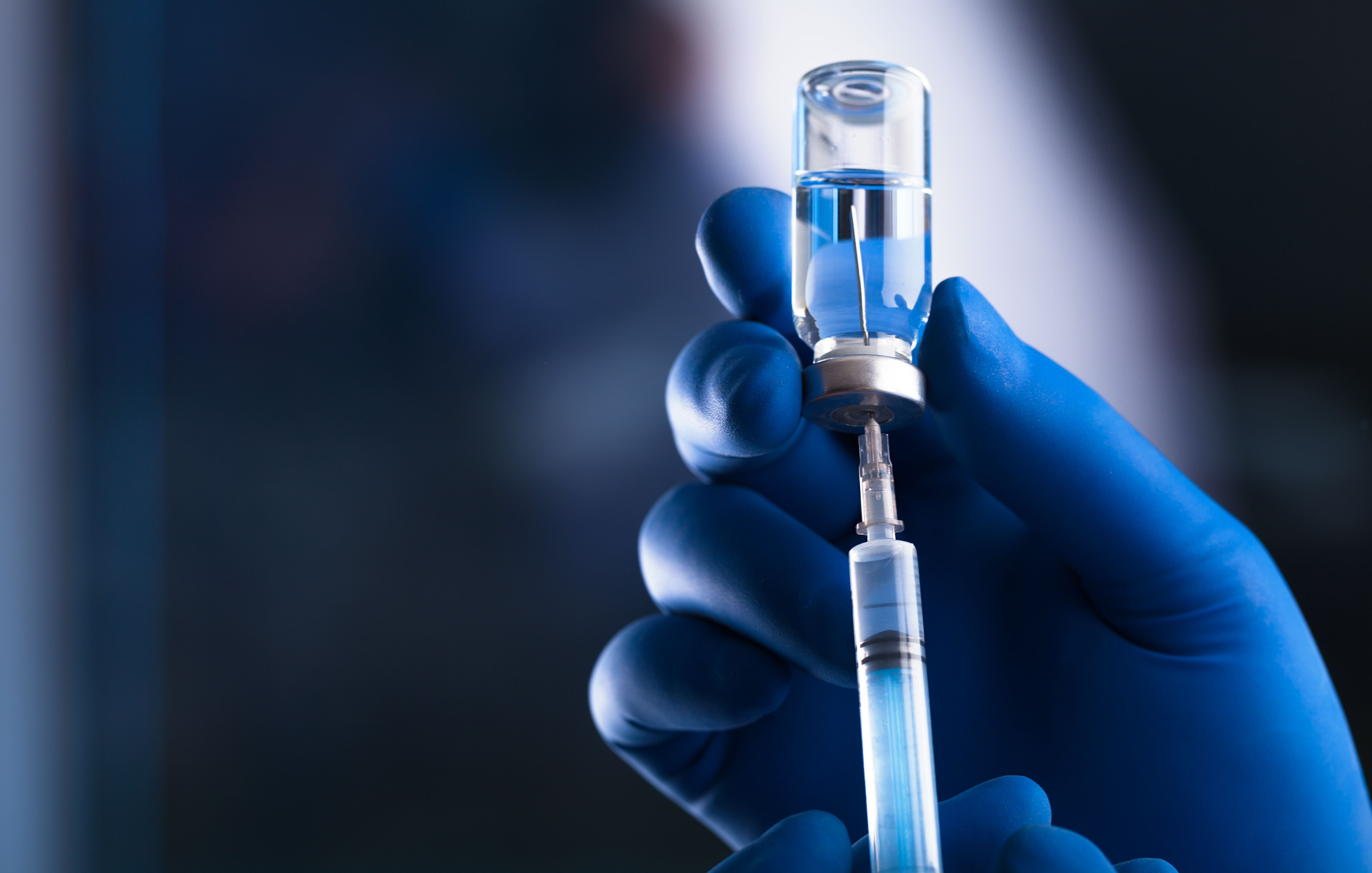ASCO Updates Guidelines on Vaccines in Patients with Cancer
The American Society of Clinical Oncology has updated its recommendations for patients with cancer on which vaccines to receive or avoid.
Medical hands holds syringe and vaccine: ©Alernon77 - stock.adobe.com

The American Society of Clinical Oncology (ASCO) recently issued a new clinical practice guideline, “Vaccinations of Adults with Cancer,” updating its recommendations for patients with cancer of which vaccines to receive.1
For adult patients of all ages, the guideline recommends:
- Influenza vaccine annually
- COVID-19 vaccine according to the recommended CDC schedule
- Tdap or Td vaccine once, followed by a booster every 10 years
- Two doses of recombinant zoster vaccine at least 4 weeks apart
- One dose of PCV20 pneumococcal vaccine or 1 dose of PCV15 followed by PPSV23 8 weeks later
For patients aged 60 or older, the guideline recommends:
- One dose of the RSV vaccine
- A series of hepatitis B vaccines if patients have other risk factors, including HIV and liver disease
“We want to document vaccination status at the first patient visit and provide recommended vaccines that might be needed as quickly as possible within the parameters of optimal oncology care…recognizing that we do not want to impede or impinge upon care,” said Elise C. Kohn, MD, of the Cancer Therapy Evaluation Program at the National Cancer Institute, and guideline cochair, in a press release.2 “These vaccinations have very limited if no potential harm, but the potential benefits are significant.”
Further, patients aged 19 to 26 are eligible for 3 doses of the HPV vaccine, and shared decision making can be used for patients 27 to 45 when considering the HPV vaccine.1
For patients undergoing chemotherapy, immunotherapy, hormonal treatment, radiation, or surgery, ASCO notes that vaccinations should precede planned cancer treatment by 2 to 4 weeks; however, it is safe for these patients to receive inactivated vaccines during or after treatment.
ASCO has additional recommendations for patients undergoing hematopoietic stem cell transplantation (HSCT), CD19 chimeric antigen receptor (CAR) T-cell therapy, or B-cell depleting therapy.
According to ASCO, patients receiving HSCT should undergo complete revaccination 6 to 12 months following HSCT, and live attenuated vaccines should be delayed for at least 2 years. Patients should only receive live attenuated vaccines if there is no presence of graft-vs-host disease or immunosuppression. COVID-19, influenza, and pneumococcal vaccines can be administered by 3 months posttransplant.
Patients undergoing CAR T-cell therapy can receive influenza and COVID-19 vaccines as early as 3 months after therapy is complete, and inactivated vaccines can be administered 6 months after treatment. However, ASCO notes that the evidence quality for this recommendation is very low, and the recommendation is weak.
COVID-19 is the only revaccination required for patients undergoing B-cell depletion therapy, and it can be administered as early as 6 months after treatment.
ASCO adds that all household members who have close contact with patients with cancer should be fully up to date on vaccinations when feasible.
For patients traveling outside of the US, ASCO recommends that patients follow the CDC standard recommendations for the destination and notes that hepatitis A, intramuscular typhoid, inactivated polio, hepatitis B, rabies, meningococcal, and inactivated Japanese encephalitis vaccines are safe to receive.
Long-term survivors of hematologic malignancies with or without active disease who have B-cell dysfunction, hypogammaglobulinemia, or B-cell lineage malignancies, should still receive the recommended inactivated vaccines; however, ASCO notes that patients’ responses may be attenuated.
REFERENCES:
1. Kamboj M, Bohlke K, Baptiste D, et al. Vaccinations of adults with cancer: ASCO guideline. J Clin Oncol. Published online March 18, 2024. doi:10.1200/JCO.24.00032
2. New ASCO guideline recommendations answer key questions about vaccinating adults with cancer. News release. American Society of Clinical Oncology. March 26, 2024. Accessed March 27, 2024. https://tinyurl.com/463h6z8p
Advances in Subsequent Therapies Shake Up Sequencing of ccRCC Treatment
April 25th 2024With the approval of belzutifan and other newer data for treating patients with recurrent renal cell carcinoma, the state of subsequent therapies is advancing beyond the reuse of frontline options with impacts on duration of response and quality of life.
Read More
Management of Immune-Related Toxicities in Melanoma Has Improved Over Time
April 24th 2024During a Case-Based Roundtable® event, Evan J. Lipson, MD, discussed with participants how their experience with immunotherapy toxicities has changed over time in the first article of a 2-part series.
Read More